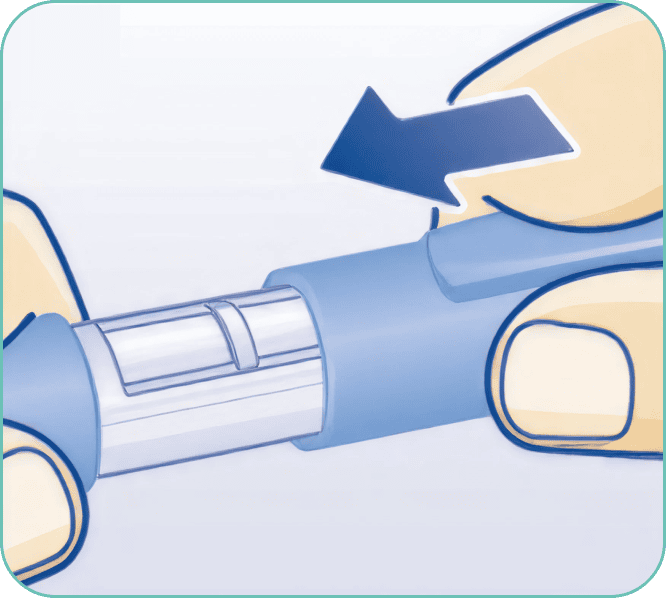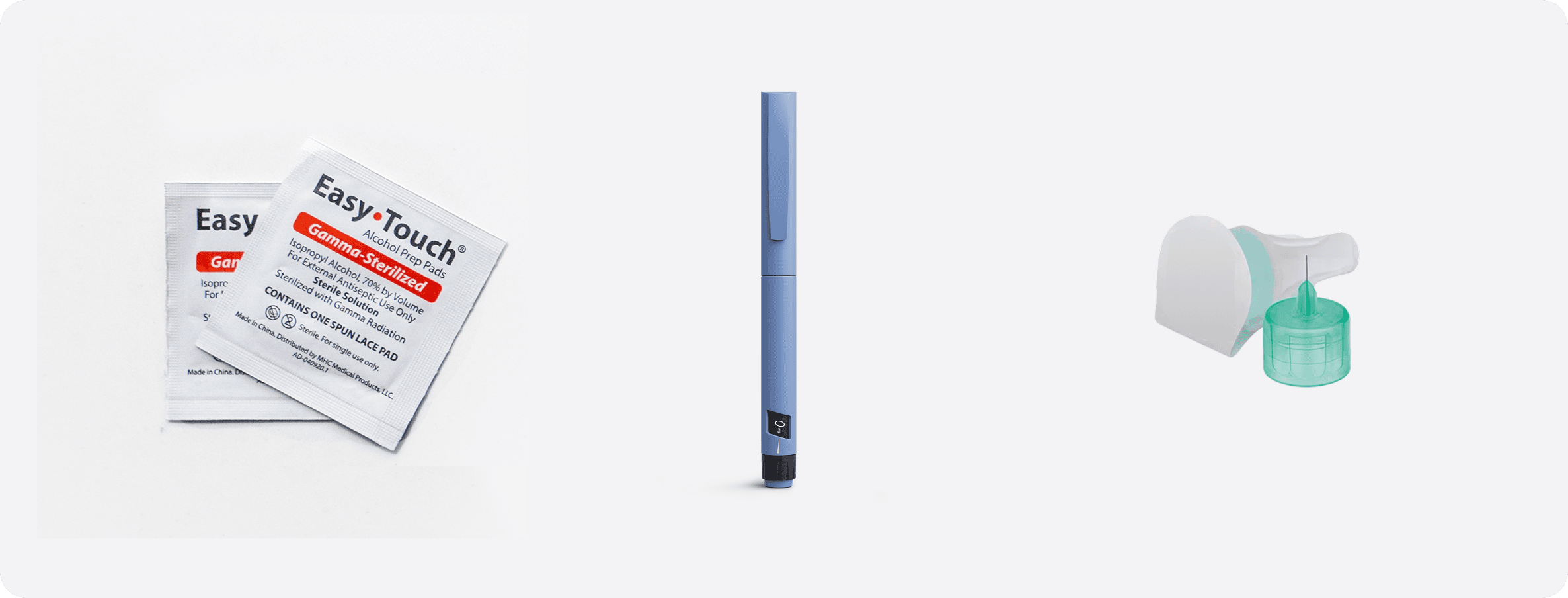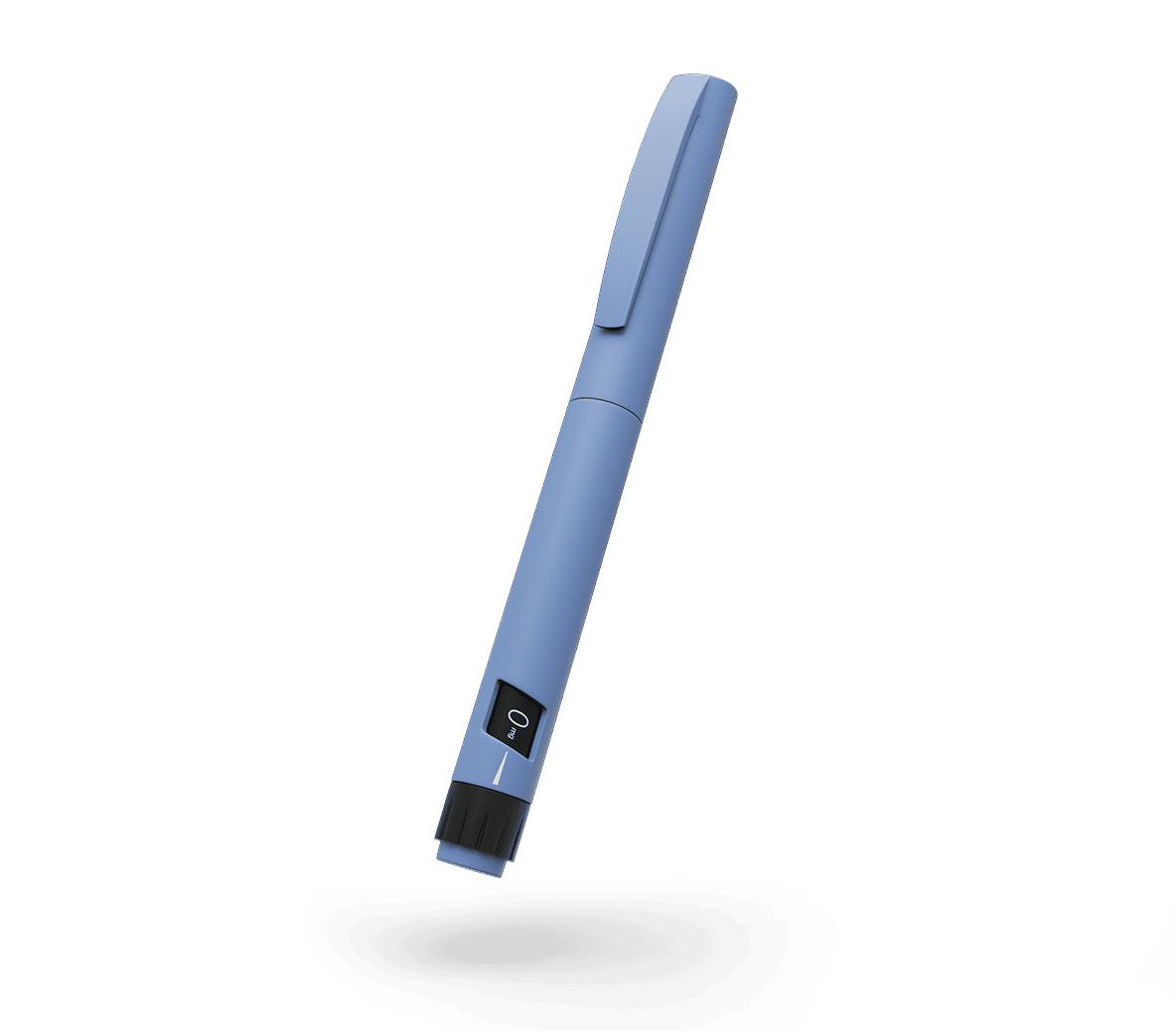Risks
Medications in the GLP-1 family have caused thyroid tumors in lab mice. It is not yet known if medications in the GLP-1 family will cause thyroid tumors or medullary thyroid carcinoma (MTC) in people.
No studies have confirmed a link between GLP-1 medications and thyroid tumors in humans. However, if you have a family history of thyroid cancer, you may want to discuss taking a GLP-1 with your primary care doctor.
If you develop any of the following while taking liraglutide, please immediately notify your Noom Med clinician and stop taking the medication:
- Sudden vision changes (Medications that alter blood sugar can have various effects on vision and should be evaluated promptly by an eye doctor.)
- Mass or swelling in the neck
- Persistent pain or difficulty with swallowing
- Persistent hoarseness
- Persistent vomiting
Do not use liraglutide if:
- You have or had an eating disorder such as binge eating disorder, anorexia nervosa, or bulimia.
- You have a personal or family history of the following conditions:
- Medullary thyroid carcinoma (MTC)
- Multiple endocrine neoplasia type 2 syndrome (MEN-2)
- You have a personal history of the following conditions:
- Diabetic retinopathy
- Pancreatitis
- Gallbladder disease (This does not include a cholecystectomy, or gallbladder removal.)
- Severe gastrointestinal disease, such as ulcerative colitis or gastroparesis
- You are currently pregnant or breastfeeding, or are planning to become pregnant.
- You have a history of drug or alcohol misuse.
- You have undergone bariatric surgery within the past 6 months.
Interactions
Liraglutide can interact with other medications, including insulin and insulin-releasing medications, which can result in low blood sugar. Consult with your Noom Med clinician before starting or stopping any medication.
GLP-1s and fertility
GLP-1s can increase fertility. Please ensure you’re taking an effective form of birth control, if applicable, to avoid pregnancy while on a GLP-1. Don’t take a GLP-1 if you’re currently pregnant or breastfeeding. If you become pregnant, please stop taking the medication and notify your Noom Med clinician immediately.
Surgery
If you have an upcoming surgery or other medical procedure, talk to your surgeon about what is safe. You may need to stop using liraglutide temporarily to avoid complications.
Side effects
All medications may cause side effects. However, many people have no side effects or only minor side effects. Contact your Noom Med clinician or get medical help if these or any other side effects bother you or don’t go away:
- Nausea
- Vomiting
- Indigestion
- Headache
- Fatigue
- Bloating
- Constipation
Rare adverse events
Liraglutide can cause serious side effects, although they’re rare. If you notice any of the signs or symptoms listed below, get medical help right away, as they could signal a serious or life-threatening problem:
- An allergic reaction (e.g., rash, chest tightness, trouble breathing, swelling of the mouth or throat).
- Severe dehydration (e.g., dizziness or passing out, fast heartbeat).
- Kidney problems (e.g., change in how much urine is passed, blood in the urine, or leg swelling).
- Gallbladder problems (e.g., pain in your belly, right shoulder area, or between the shoulder blades; pale-colored stools; dark urine; yellow skin or eyes; fever or chills).
- Low blood sugar (e.g., dizziness, feeling sleepy or weak, shaking, confusion, hunger, or sweating).
- Severe pancreas problems (e.g., severe stomach or back pain or vomiting).
- Sudden vision changes.
- Mood changes, like depression or thoughts of suicide.
- Increase in heart rate.
















